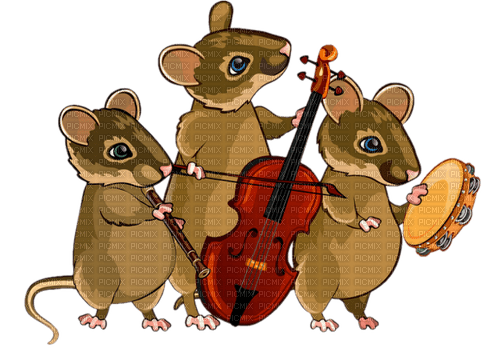Read, Talk, Sing! Music is a part of family life in every culture. Simple lullabies have been sung to babies since the beginning of time. As an educator, I know that singing a familiar song can help form a special bond between parent and child.
Benefits of music in early childhood development
Music and movement are critical for children’s early brain development. Singing, and the rhythm and rhyme that happens with it, helps to shape your child’s social skills, vocabulary, and ability to regulate emotions.
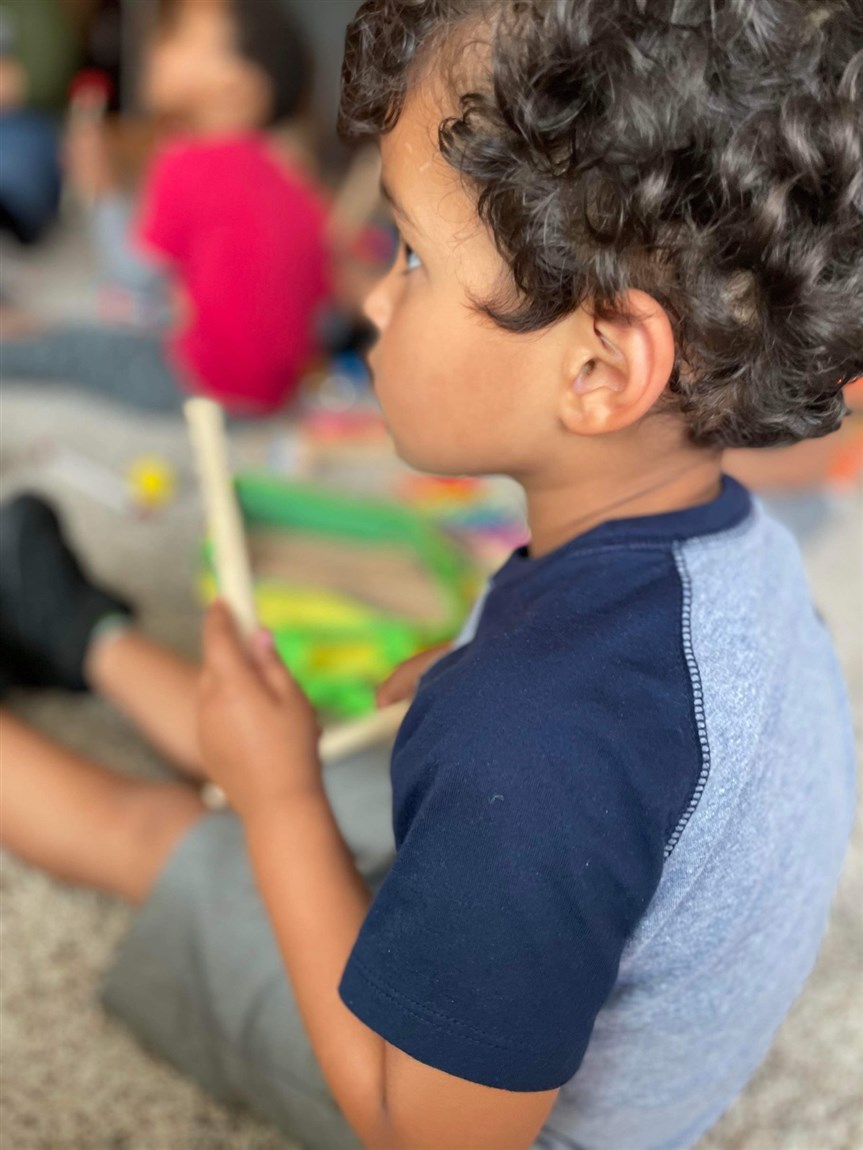
Music can help buffer stress, literally calming the heartbeat and soul. Even if you don’t consider yourself the best singer, hearing your voice has a calming influence on your baby when you slow down your words and sing them with rhythm.
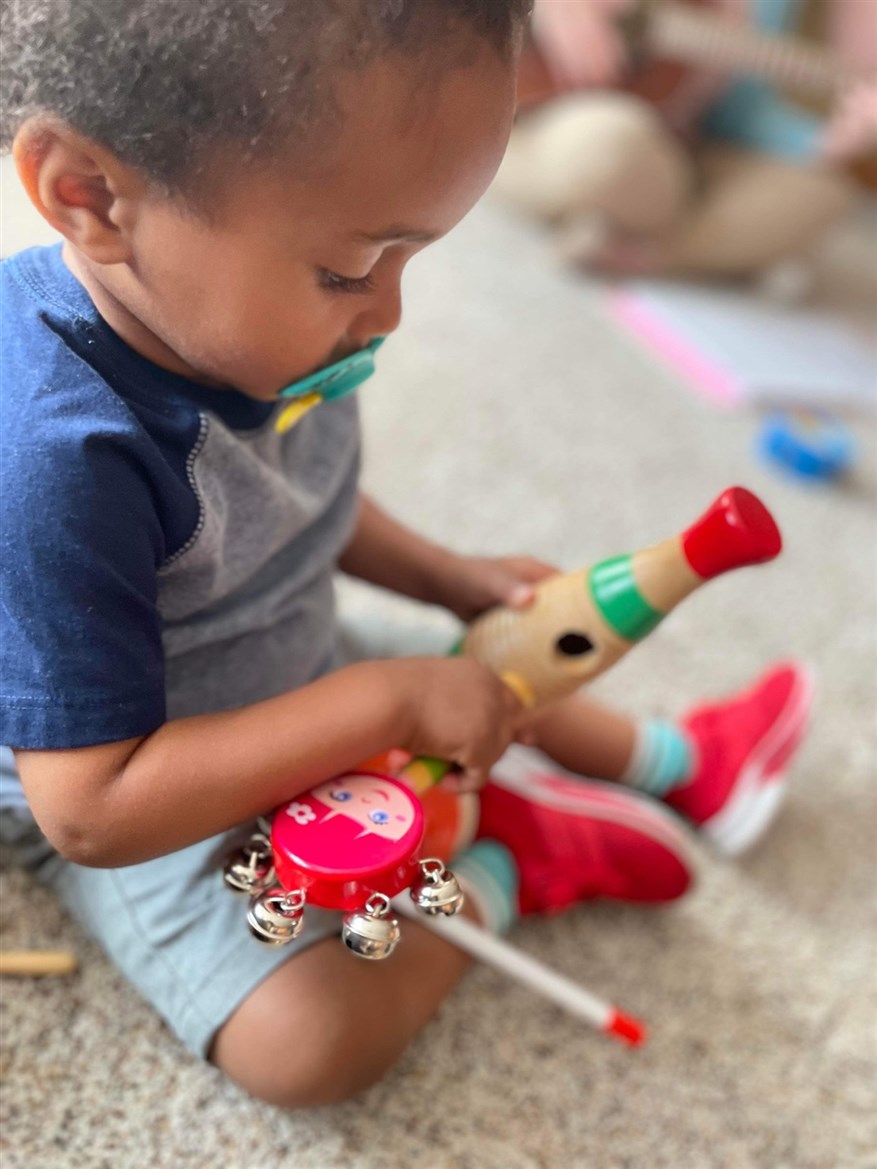
By moving or dancing with the music, infants and toddlers fine tune their motor skills, develop body and spatial awareness, and improve balance.
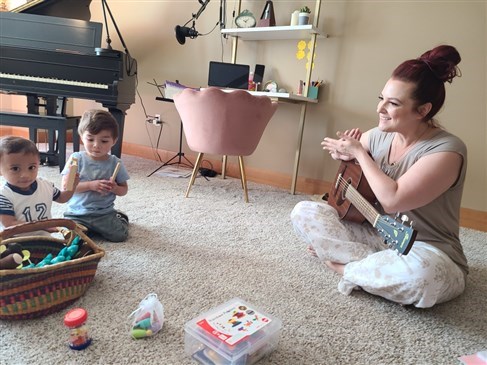 Music and the brain: The benefits of music
Music and the brain: The benefits of music
A 2016 study at the University of Southern California’s Brain and Creativity Institute found that musical experiences in childhood can actually accelerate brain development, particularly in the areas of language acquisition and reading skills. According to the National Association of Music Merchants (NAMM Foundation), learning to play an instrument can improve mathematical learning and even increase SAT scores.
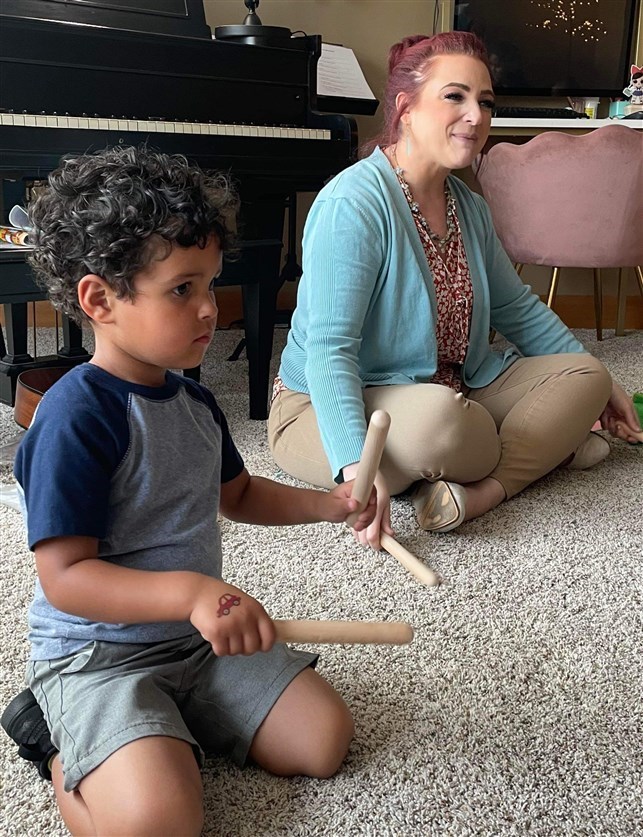
But academic achievement isn’t the only benefit of music education and exposure. Music ignites all areas of child development and skills for school readiness, including intellectual, social-emotional, motor, language, and overall literacy. It helps the body and the mind work together. Exposing children to music during early development helps them learn the sounds and meanings of words. Dancing to music helps children build motor skills while allowing them to practice self-expression. For children and adults, music helps strengthen memory skills.
